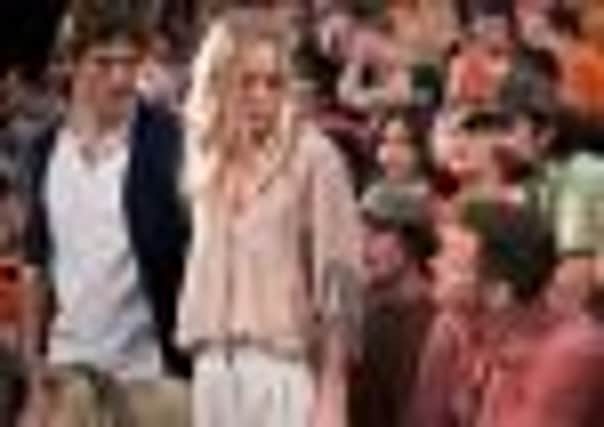Film review: Straw Dogs (18)


In Rod Lurie’s update, David Sumner (James Marsden) is a Hollywood scriptwriter not a mathematician, who scoops up his actress wife Amy (Kate Bosworth) to live in her old family home in Mississippi, rather than Cornwall, so that he can write a screenplay about Stalingrad. Wasn’t there a siege in Stalingrad? That’s called foreshadowing, in David’s world.
In the Peckinpah film, Dustin Hoffman and Susan George were an obvious mismatch; the cracks in the relationship were there when they first exchanged rings. The new Straw Dogs couple are equally pretty and equally flavourless.
Advertisement
Hide AdDespite the change of job and address plus a looks upgrade, much of the key plotting remains the same: namely that the locals like Amy but view David as internally and externally weak – in the update, it’s because he drives a flash car but doesn’t know how to change its tyres, likes his beer light, and eschews the local delicacy of fried pickles. He’s also condescending about their God-fearing ways and is not keen on hunting.
The real trouble starts when the couple hire Amy’s childhood sweetheart Charlie (Alexander Skarsgard) and his pals to fix up their barn. Soon Charlie and co are pushing their luck by helping themselves to beers from the fridge in the main house, knocking off early to go hunting, and playing their Lynyrd Skynyrd greatest hits far too loud.
They also spend a lot of time ogling Amy, who likes to jog shoeless and bra-less. The former sounds like a chiropodist’s nightmare, the latter exasperates her husband. “Are you saying I’m asking for it?” says Bosworth when Marsden suggests she find some underwear. At least this deviates from Peckinpah’s version, which was keen to imply that, yes, she was. Mostly, however, feminist politics don’t much interest this film, even though the earlier version was censored and rendered notorious for an attack on George’s character that was unpalatable even in those less PC times.
Lurie is more preoccupied in expressing the divide between red states republicanism and blue liberalism. It’s just a pity that his impression of the Deep South seems to be part Tea Party, part Deliverance, and it’s hardly helped by James Woods as the town’s retired football coach and full-time barfly, giving a performance that suggests demonic possession by Foghorn Leghorn the six-foot chicken.
The original Straw Dogs was no masterpiece: it was infuriating and exploitative with some pretty unpleasant messages about feminism and gripping up and surrendering to your inner Rambo. But this version feels like a potboiler that can’t match the shocks of the original Straw Dogs, partly because it is out of sync with changed times. Back in 1971, audiences were repelled by the violence depicted on screen; modern audiences who have seen it all, up to and including Saw, are less easily spooked. When the siege finally happens, and intruders have to be fended off with fiendish traps and brute violence, I was fleetingly reminded of Home Alone. v
STRAW DOGS (18)
Director: Rod Lurie
Running time: 110 minutes
HH
On general release from Friday